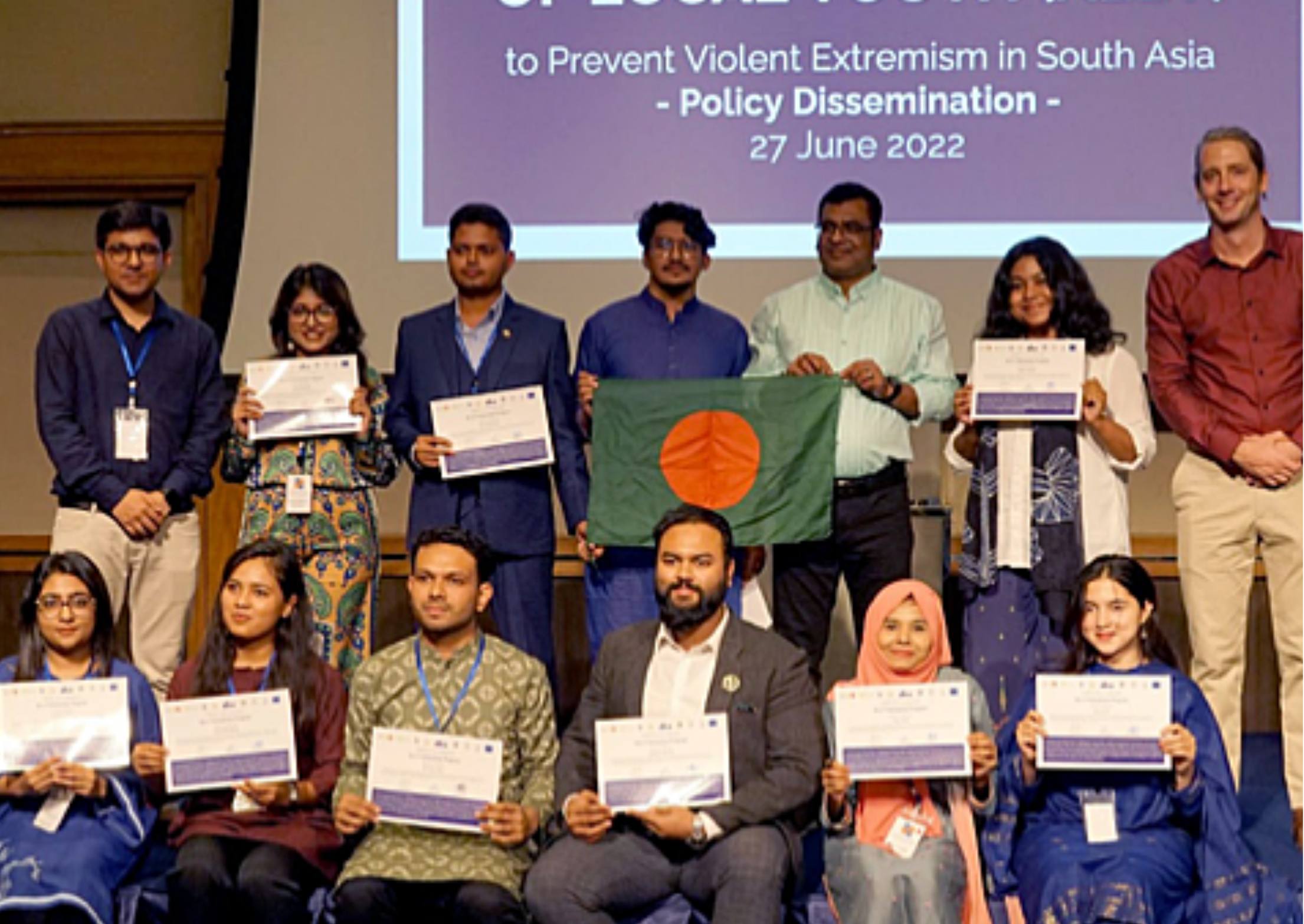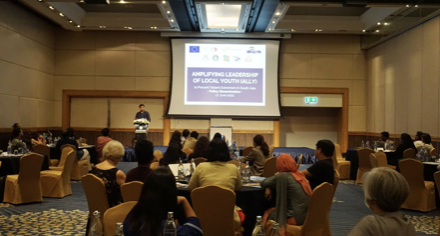SAP Stories 2022
Sharing is Caring and AI4Peace
To prevent violent extremism, the ALLY Fellows need to understand what creates it. Cultural and social factors are interconnected and have different levels of impact and contribution. In other words, it is always hard to say exactly what drives some to become extremists.
The ALLY policy briefs outline how unequal access to basic needs and services, including health care, food, mental health services, and education, were all noted as significant cultural and social factors. ALLY research honed in on the lack of peace and civic education, the nonexistence of comparative religion in school curricula, and the absence of mixed school systems as drivers of ethnic segregation that leads to VE. Armed with this research, ALLY Fellows in India and Bangladesh are implementing SAPs that aim to educate and empower youth in interesting ways.
During the ALLY Dissemination Event in Bangkok, Thailand on 27 June 2022, ALLY Fellow Vinayak Rajesekhar met with FHI 360 and discussed state-led and -driven operations fuelling VE. There are many such examples of how state actions drive extremism. Vinayak and Baksheesh Sachar, the creators of the SAP AI4Peace, are most familiar with the ways in which Artificial Intelligence (AI) has created a novel, little-understood source of extremism in South Asia.

ALLY staff and Bangladesh Fellows at the Dissemination Event.
AI is being increasingly deployed by tech firms as a core element of their business models and continues to operate within a largely unregulated labyrinth as governments struggle to develop policies and regulations to govern the deployment and use of AI, particularly by institutions such as law enforcement agencies.
The AI4Peace Fellows recognized that AI is a space with huge potential for further study and understanding. While the technology itself is a subject of constant evolution and examination, they are exploring the impact of AI on VE through discussions with industry leaders via their new podcast, AI4Peace, to break down the use of the technology and potential impacts, and long-term implications across contexts. Episodes are currently being uploaded on a weekly basis, and following the publication of all episodes, the fellows will publish a compendium highlighting the keenest insights and recommendations for youth interested in this evolving technology and its impacts on social cohesion.
At the same time, Vinayak was engaging with FHI360, Zakia Sultana met with EarthRights International to discuss their approach to including indigenous voices in environmental advocacy. Working in Rajshahi, Bangladesh, Zakia is closely familiar with how social and economic exclusion creates a fertile environment for extremism.

ALLY staff and Fellows presented policy recommendations to regional actors in Bangkok, Thailand on 27 June 2022.
ALLY Fellows Zakia, Fariha Jannat, Zannatul Ferdush, and Fayzullah Fayz are taking a similar but more traditional platform than AI4Peace’s podcasts to inform youth about drivers of VE as part of their SAP Sharing is Caring. They are tapping into local radio to make their voices heard.
In phase one of their work, the fellows conducted online training and advocacy engagements. In 2022, they are focusing on university students, the most vulnerable group for VE, to not just share information with them, but empower them with resources for an easier transition from student to professional.
The fellows are promoting civic opportunities provided by the government in Rajshahi, Bangladesh that will support the students to be positively engaged in their communities. They’re taking a diverse approach to share such resources and job opportunities. In addition to radio, they set up a street stall to talk directly to students, distribute stickers and further promote their radio and online presence. Sharing is Caring continues to share opportunities for the youth of Rajshahi via its Facebook page throughout the summer of 2022.
Meanwhile, fellows from both SAPs continue to work with ALLY staff in their countries to conduct advocacy engagements with national policymakers, drawing on both ALLY research and their own experiences implementing their SAPs. In addition to their impact on youth and social cohesion, the fellows are also positioning themselves as the foremost experts on drivers of not just VE, but also peaceful, informed, and productive lives. Follow Sharing is Caring (Facebook) and AI4Peace (Spotify / Instagram) on social media for more updates.
Follow the Network’s Asia Programming on social!
